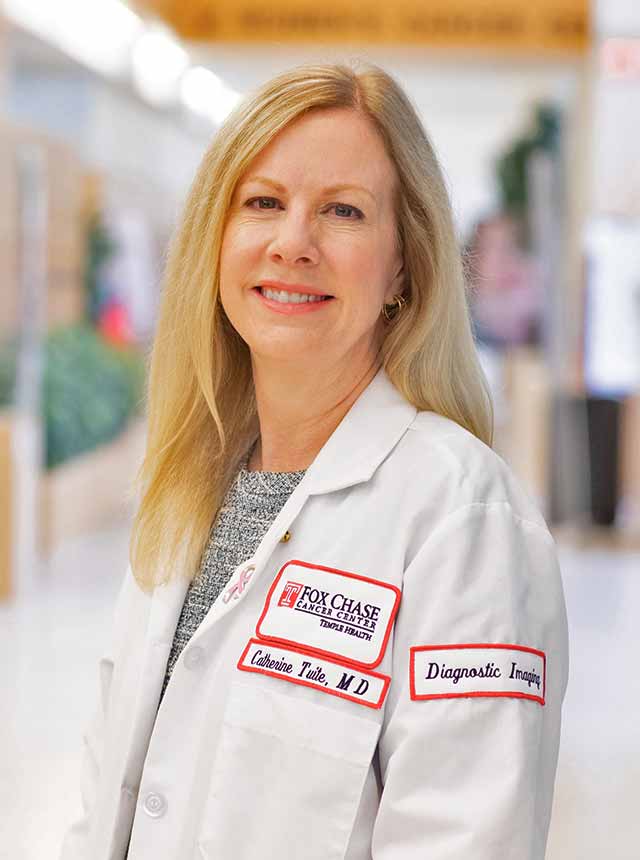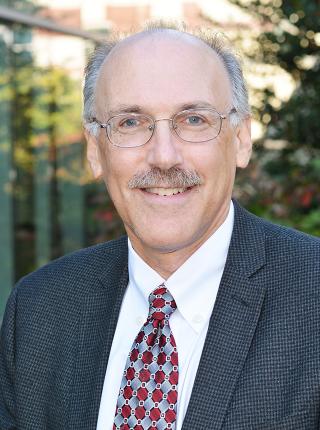
PHILADELPHIA (March 27, 2020)—Researchers at Fox Chase Cancer Center recently concluded an analysis of ten years of data, the largest of its kind to date, that could help patients avoid unnecessary breast biopsies by giving radiologists more confidence in evaluating a certain type of lesion.
“This study evaluated outcomes of a type of breast ultrasound lesion called clustered microcysts, a common finding in up to six percent of breast ultrasound examinations, especially in perimenopausal women,” said Catherine Tuite, MD, an associate professor in the Department of Diagnostic Imaging and Section Chief for Breast Radiology in the Section of Radiology.
According to an editorial which accompanied the study, one of the biggest criticisms in breast imaging is frequent false-positive findings of ultrasounds that require more testing and biopsies of lesions that eventually prove to be benign.
The researchers conducted a retrospective study of lesions classified as clustered microcysts between 2005 and 2015 at Fox Chase and Temple University Hospital. A total of 189 women with 196 lesions were tracked with long-term imaging follow-up and/or tissue diagnosis. The researchers found no malignancies in any of the 196 lesions.
Tuite’s co-authors on the study were Alyssa R. Goldbach, DO, a resident in the Department of Radiology at Temple, and Eric Ross, PhD, ScM, director of the Biostatistics and Bioinformatics Facility at Fox Chase.
“The most important takeaway is that when clustered microcysts with a classic imaging appearance and no associated suspicious features are identified, the radiologist may more confidently assess the finding as benign,” said Tuite. This helps radiologists avoid making unnecessary recommendations for follow-up imaging or biopsy, she said.
Tuite said this work contributes additional cases to the existing literature on the subject, increasing the published cases to over 500. This provides sufficient data to support a benign assessment for the vast majority of clustered microcyst findings.
“As breast radiologists at Fox Chase, we are acutely sensitive to the uncertainty and worry that follow-up imaging or a biopsy recommendation may cause our patients, and when supported by published evidence, we seek to reduce or avoid that whenever possible,” said Tuite.

She noted that five percent of women in the series had previously been treated for breast cancer, but none of the lesions identified in this group were malignant. However, women who have newly diagnosed breast cancer and have a suspected clustered microcyst, especially in the same breast as the cancer, may still undergo biopsy so that more information can be gathered for treatment purposes.
Steps following the publication of the study could be to update the management recommendations for clustered microcysts in the Breast Imaging Reporting and Data System atlas. The atlas standardizes breast imaging terminology, assessment, and classification to enable the communication of results clearly and consistently. The change would need to be approved by the American College of Radiology based on additional data, Tuite said.
The study, “Clustered Microcysts at Breast US: Outcomes and Updates for Appropriate Management Recommendations,” was published in the journal Radiology.